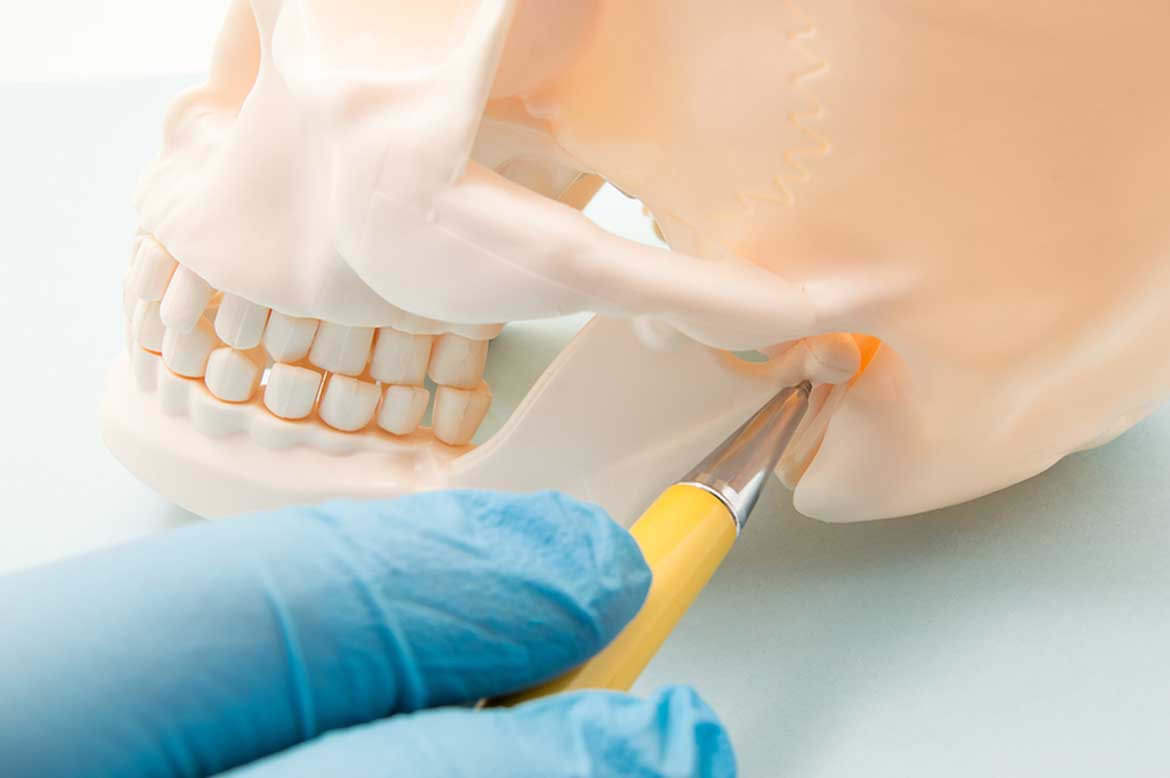TMJ Therapy

What is the TMJ?
The temporomandibular joint (TMJ) connects the mandible (lower jawbone) to the base of the skull. We have two TMJs, connected by just one mandible. Our TMJs allow us to chew, speak, yawn, and more. TMJ disorders may cause discomfort in the cheek, around the ears, or within the joint itself, and can affect normal jaw function.
Minor TMJ disorders can be managed with a soft diet, using ice packs, avoiding extreme jaw movements, anti-inflammatory medications, Botox injections, or splints.
Minor TMJ disorders can be managed with a soft diet, using ice packs, avoiding extreme jaw movements, anti-inflammatory medications, Botox injections, or splints.
Signs and symptoms of TMJ disorders may include:
- Headaches
- Neck pain
- Pain or soreness in the cheek, jaw, or ears
- Facial pain
- Tight jaws
- Popping or clicking sounds
- Locking of the jaw
- Difficulty or discomfort while chewing
These symptoms may be intensified by stress.
Splint Therapy
Depending on the nature, severity, and location of your symptoms, we may recommend a nightguard, a deprogrammer, and/or a splint. These are all a type of appliance that is worn for a recommended period of time. The goal may be to help relax the jaw muscles, to protect the teeth, or to find a more stable bite position.
Would you like to learn more about TMJ Therapy?
